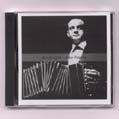
description
s attitudes in the ancient world toward homoeroticism, that is, erotic same-sex relations. Focusing on the Bible and its cultural environment-Mesopotamia, Greece, Rome, Israel-Nissinen concisely and readably introduces the relevant sources and their historical contexts in a readable way. Homoeroticism is examined as a part of gender identity, i.e., the interplay of sexual orientation, gender identification, gender roles, and sexual practice. In the patriarchal cultures of the biblical world, Nissinen shows, homoerotic practices were regarded as a role construction between the active and passive partners rather than as expressions of an orientation moderns call "homosexuality." Nissinen shows how this applies to the limited acceptance of homoerotic relationships in Greek and Roman culture, as well as to Israel's and the early church's condemnation of any same-sex erotic activity. For readers interested in the ancient world or contemporary debates, Nissinen's fascinating study shows why the ancient texts - both biblical and nonbiblical - are not appropriate for use as sources of direct analogy or argument in today's discussion.
member goods
No member items were found under this heading.
notems store

Decoding Your Cat: The Ultimate ...
by American College of Veterinary Behaviori
Paperback /Paperback$17.24
listens & views

60'S & 70'S COUNTRY ROCK ...
by 60'S AND 70'S COUNTRY ROCK / VARIOUS
COMPACT DISCout of stock
$8.99
Return Policy
All sales are final
Shipping
No special shipping considerations available.
Shipping fees determined at checkout.





